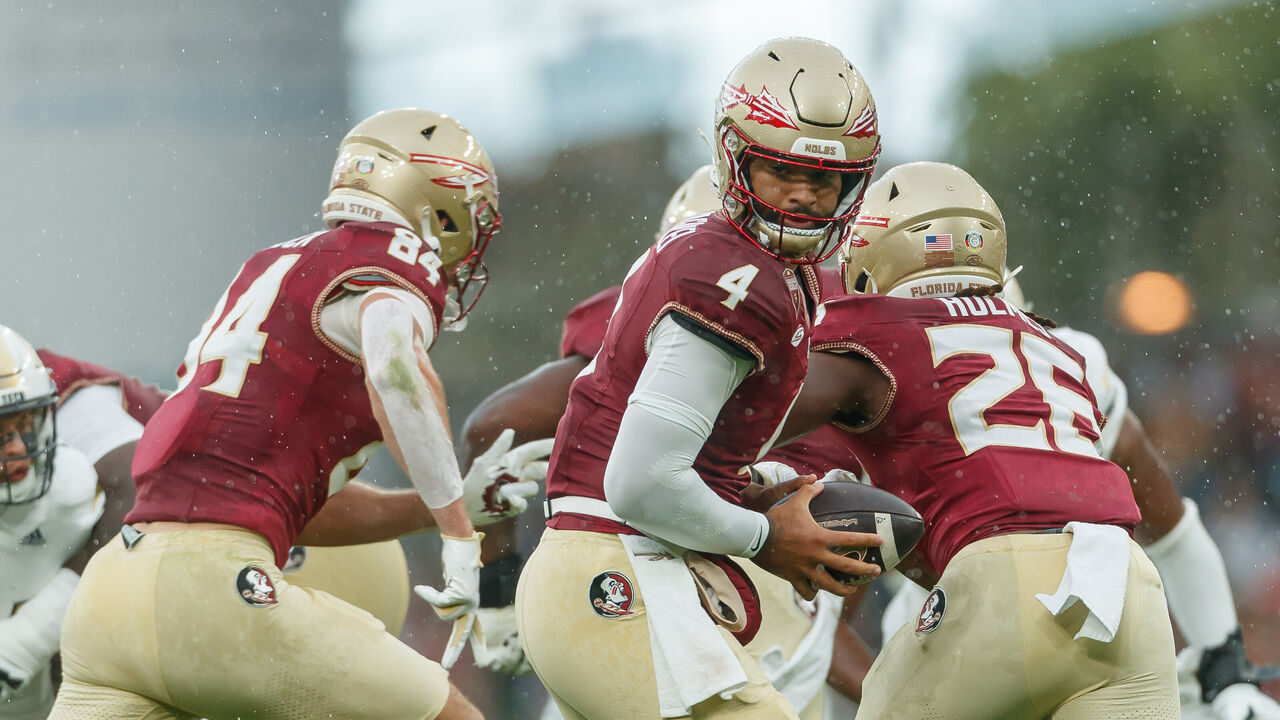NCAA's current NIL chaos culminates years of bad decisions
Reggie Bush announced a lawsuit against the NCAA and other parties last week, another log on the long-running legal fire between the former USC running back and the college sports infrastructure.
The latest action seeks, essentially, back pay for the name-image-likeness (NIL) rights that he didn't receive during his Heisman Trophy-winning career. That trophy - along with a pile of USC wins and the 2004 national title - were revoked over a scandal that, in today's football landscape, seems kind of quaint.
The NCAA charged that sports marketers acting on USC's behalf lavished Bush and his family with gifts, including a rent-free home and the suit he wore to the Heisman ceremony - gifts Bush wasn't allowed to accept.
Star players receiving cash and other goodies from people not technically linked to their schools had been the stuff of legend for decades, with rumors swirling of car dealerships giving out free rides and churches used as exchange locations because they'd get little scrutiny.
Such subterfuge has been replaced, in the still-nascent NIL era, by deals that are much more public, but the system still appears ripe for abuse. Quarterback Matthew Sluka, who transferred to UNLV after four successful years at Holy Cross, quit the program last week, citing unfulfilled NIL promises. He says a UNLV assistant coach promised him $100,000, but Sluka only received a $3,000 "relocation fee." He left the team, which was 3-0 at the time and thought to be in contention for a spot in the expanded football playoffs, to preserve a year of eligibility - and be in line for a future NIL payday.
The Sluka case neatly illustrates the issues with the current system. Schools don't want to offer athletes money directly, so the court case that ushered in the NIL era led to the creation of affiliated NIL collectives, usually comprised of wealthy boosters and businesses, who handle the actual deals. But the arm's-length arrangement can mean that the collective makes promises that the football program doesn't match. In Sluka's case, the problem went the other way: a promise of money from a coach, with the collective saying they knew nothing about it. (UNLV running back Michael Allen also left the team but said it was related to a lack of playing time.)
All of it is, in a word, ridiculous. There have already been stories of million-dollar promises that went unfulfilled, and highly compensated players who then discovered they still had to fight for a starting job. There are also questions about what happens when players perform poorly. Florida State started the season with upset losses and much of the blame fell on quarterback DJ Uiagalelei, who transferred from Oregon State for what's believed to be at least a six-figure NIL deal. How much does that affect the decision to possibly bench him?

In theory, much of this could be avoided after the resolution of another NCAA lawsuit, settlement terms of which will allow schools to pay athletes out of a revenue-sharing fund. But NIL deals will still exist outside of that pool of money, which could still bring situations where a player, coach, and collective all have different understandings of an agreement.
The Sluka case was, at least, early in the season and at a relatively low-profile school. What happens if a Georgia quarterback or Alabama running back decides they haven't been properly compensated on, say, the week of a conference championship? In the pros, these things are policed by the terms of the collective bargaining agreement. In college, it seems that anything goes right now.
All the players ever sought was a little slice of a massive revenue-generating pie. Fans can complain that the money flowing in has ruined college sports, but what it has also done is end the long-running exploitation of college athletes who helped their schools rake in millions of dollars while they couldn't so much as sell an autographed football.
And the schools are already trying to figure out ways not to share the wealth but to preserve what they already have. The University of Tennessee plans to add a 10% "talent fee" to tickets to all sports events, passing some of the cost of NIL deals onto the students and public. Other big schools will undoubtedly be gauging the response to see if they can do the same.
In an era when coaches can be paid tens of millions of dollars - and no school has yet added a "headset fee" to ticket prices - the move seems designed to encourage fans to direct anger at the players for getting paid.
All of this because the athletes at the center of a billion-dollar industry used to have to provide exceedingly cheap labor.
Wouldn't it have been easier for USC to pay Reggie Bush?
Scott Stinson is a contributing writer for theScore.